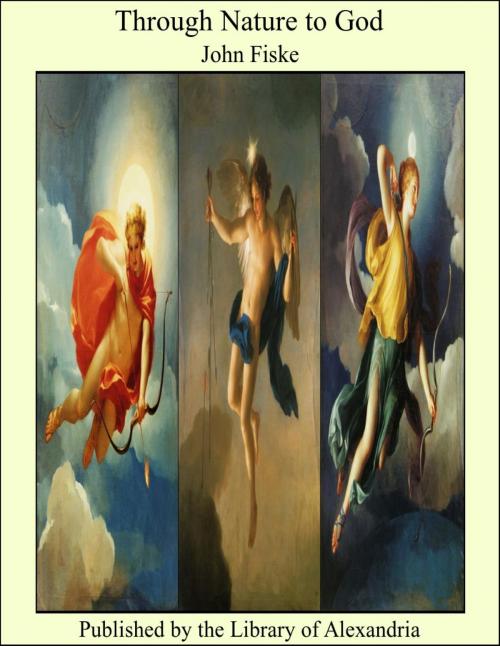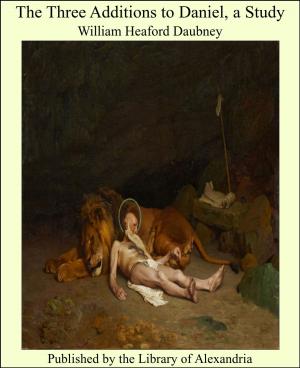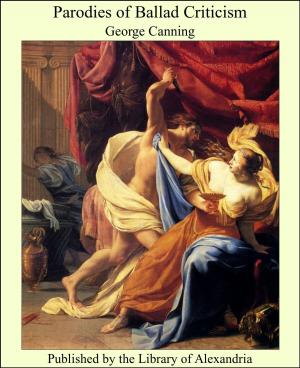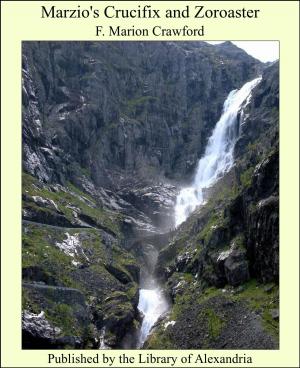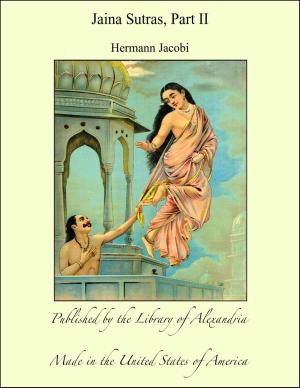| Author: | John Fiske | ISBN: | 9781465511539 |
| Publisher: | Library of Alexandria | Publication: | March 8, 2015 |
| Imprint: | Language: | English |
| Author: | John Fiske |
| ISBN: | 9781465511539 |
| Publisher: | Library of Alexandria |
| Publication: | March 8, 2015 |
| Imprint: | |
| Language: | English |
A single purpose runs throughout this little book, though different aspects of it are treated in the three several parts. The first part, "The Mystery of Evil," written soon after "The Idea of God," was designed to supply some considerations which for the sake of conciseness had been omitted from that book. Its close kinship with the second part, "The Cosmic Roots of Love and Self-Sacrifice," will be at once apparent to the reader. That second part is, with a few slight changes, the Phi Beta Kappa oration delivered by me at Harvard University, in June, 1895. Its original title was "Ethics in the Cosmic Process," and its form of statement was partly determined by the fact that it was intended as a reply to Huxley's famous Romanes lecture delivered at the University of Oxford in 1893. Readers of "The Destiny of Man" will observe that I have here repeated a portion of the argument of that book. The detection of the part played by the lengthening of infancy in the genesis of the human race is my own especial contribution to the Doctrine of Evolution, so that I naturally feel somewhat uncertain as to how far that subject is generally understood, and how far a brief allusion to it will suffice. It therefore seemed best to recapitulate the argument while indicating its bearing upon the ethics of the Cosmic Process. I can never cease to regret that Huxley should have passed away without seeing my argument and giving me the benefit of his comments. The subject is one of a kind which we loved to discuss on quiet Sunday evenings at his fireside in London, many years ago. I have observed on Huxley's part, not only in the Romanes lecture, but also in the charming "Prolegomena," written in 1894, a tendency to use the phrase "cosmic process" in a restricted sense as equivalent to "natural selection;" and doubtless if due allowance were made for that circumstance, the appearance of antagonism between us would be greatly diminished. In our many talks, however, I always felt that, along with abundant general sympathy, there was a discernible difference in mental attitude. Upon the proposition that "the foundation of morality is to ... give up pretending to believe that for which there is no evidence," we were heartily agreed. But I often found myself more strongly inclined than my dear friend to ask the Tennysonian question:-- "Who forged that Other influence, That heat of inward evidence, By which he doubts against the sense?" In the third part of the present little book, "The Everlasting Reality of Religion," my aim is to show that "that Other influence," that inward conviction, the craving for a final cause, the theistic assumption, is itself one of the master facts of the universe, and as much entitled to respect as any fact in physical nature can possibly be. The argument flashed upon me about ten years ago, while reading Herbert Spencer's controversy with Frederic Harrison concerning the nature and reality of religion. Because Spencer derived historically the greater part of the modern belief in an Unseen World from the savage's primeval world of dreams and ghosts, some of his critics maintained that logical consistency required him to dismiss the modern belief as utterly false; Otherwise he would be guilty of seeking to evolve truth from false-hood. By no means, replied Spencer: "Contrariwise, the ultimate form of the religious consciousness is the final development of a consciousness which at the outset contained a germ of truth obscured by multitudinous errors." This suggestion has borne fruit in the third part of the present volume, where I have introduced a wholly new line of argument to show that the Doctrine of Evolution, properly understood, does not leave the scales equally balanced between Materialism and Theism, but irredeemably discredits the former, while it places the latter upon a firmer foundation than it has ever before occupied
A single purpose runs throughout this little book, though different aspects of it are treated in the three several parts. The first part, "The Mystery of Evil," written soon after "The Idea of God," was designed to supply some considerations which for the sake of conciseness had been omitted from that book. Its close kinship with the second part, "The Cosmic Roots of Love and Self-Sacrifice," will be at once apparent to the reader. That second part is, with a few slight changes, the Phi Beta Kappa oration delivered by me at Harvard University, in June, 1895. Its original title was "Ethics in the Cosmic Process," and its form of statement was partly determined by the fact that it was intended as a reply to Huxley's famous Romanes lecture delivered at the University of Oxford in 1893. Readers of "The Destiny of Man" will observe that I have here repeated a portion of the argument of that book. The detection of the part played by the lengthening of infancy in the genesis of the human race is my own especial contribution to the Doctrine of Evolution, so that I naturally feel somewhat uncertain as to how far that subject is generally understood, and how far a brief allusion to it will suffice. It therefore seemed best to recapitulate the argument while indicating its bearing upon the ethics of the Cosmic Process. I can never cease to regret that Huxley should have passed away without seeing my argument and giving me the benefit of his comments. The subject is one of a kind which we loved to discuss on quiet Sunday evenings at his fireside in London, many years ago. I have observed on Huxley's part, not only in the Romanes lecture, but also in the charming "Prolegomena," written in 1894, a tendency to use the phrase "cosmic process" in a restricted sense as equivalent to "natural selection;" and doubtless if due allowance were made for that circumstance, the appearance of antagonism between us would be greatly diminished. In our many talks, however, I always felt that, along with abundant general sympathy, there was a discernible difference in mental attitude. Upon the proposition that "the foundation of morality is to ... give up pretending to believe that for which there is no evidence," we were heartily agreed. But I often found myself more strongly inclined than my dear friend to ask the Tennysonian question:-- "Who forged that Other influence, That heat of inward evidence, By which he doubts against the sense?" In the third part of the present little book, "The Everlasting Reality of Religion," my aim is to show that "that Other influence," that inward conviction, the craving for a final cause, the theistic assumption, is itself one of the master facts of the universe, and as much entitled to respect as any fact in physical nature can possibly be. The argument flashed upon me about ten years ago, while reading Herbert Spencer's controversy with Frederic Harrison concerning the nature and reality of religion. Because Spencer derived historically the greater part of the modern belief in an Unseen World from the savage's primeval world of dreams and ghosts, some of his critics maintained that logical consistency required him to dismiss the modern belief as utterly false; Otherwise he would be guilty of seeking to evolve truth from false-hood. By no means, replied Spencer: "Contrariwise, the ultimate form of the religious consciousness is the final development of a consciousness which at the outset contained a germ of truth obscured by multitudinous errors." This suggestion has borne fruit in the third part of the present volume, where I have introduced a wholly new line of argument to show that the Doctrine of Evolution, properly understood, does not leave the scales equally balanced between Materialism and Theism, but irredeemably discredits the former, while it places the latter upon a firmer foundation than it has ever before occupied
